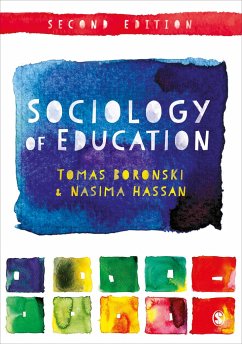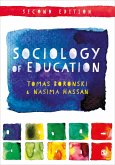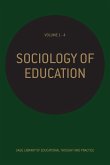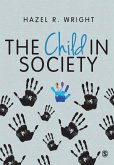This textbook explains the basic principles of sociology and how a sociological understanding is vital for understanding how ideas about education and schooling have developed over time and how these issues directly affect our own lives today.
This fully updated second edition will encourage students to think critically about hotly contested debates in education and what has influenced different perspectives on these issues.
New to this edition:
· Two new chapters on early approaches to sociological research and social class and social mobility
· A new case study feature throughout the book
· Enhanced coverage of recent education policy, child poverty, political extremism and the politics of independent and grammar schools.
This is essential reading for students on undergraduate Education Studies degrees, and for sociology courses covering educational issues.
This fully updated second edition will encourage students to think critically about hotly contested debates in education and what has influenced different perspectives on these issues.
New to this edition:
· Two new chapters on early approaches to sociological research and social class and social mobility
· A new case study feature throughout the book
· Enhanced coverage of recent education policy, child poverty, political extremism and the politics of independent and grammar schools.
This is essential reading for students on undergraduate Education Studies degrees, and for sociology courses covering educational issues.
This remains a key textbook in Sociology of Education studies within undergraduate and postgraduate studies. The authors continue to increase understandings of the complexity of educational sociology in domestic and international contexts. Boronski and Hassan should be praised again for this undertaking and the second edition is both necessary and welcome.
Dr. Richard Race
Dr. Richard Race








